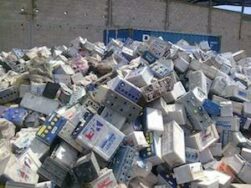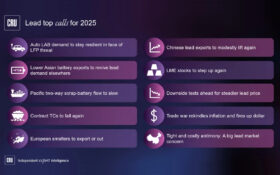China has introduced a cradle to grave lead-acid battery monitoring system that will put recycling responsibilities on the manufacturer.
China’s State Council’s Extended Producer Responsibility (EPR) Plan puts lead-acid battery makers accountable for their product from design, use, recycling and waste disposal began last month.
The first of three key elements of the plan will ‘encourage’ China’s domestic producers to make their batteries traceable, and ensure they own or have a professional authorised recycling pattern.
Secondly they will have to ensure professional firms dispose of their batteries.
They must also help to improve recycling technology and cross-regional transport methods.
Shanghai will be the first city to establish a ‘sell one, recycle one’ recycling system for lead-acid batteries.
The move will no doubt bring order to China’s scrap metal markets and help to stamp out the illegal flow of scrap lead-acid batteries to traders and unqualified secondary lead smelters.
For example, at 16ABC BBB learnt 90% of lead-acid batteries in China were collected, but less than 30% were taken by legally registered recycling firms.
A raft of environmental laws introduced in the country has seen 90% of lead-acid battery manufacturing plants closed since 2004.
Furthermore, plants with less than $20million annual revenue were shut down, as were plate makers and dry-charged lead-acid plants.
A 4% lead-acid consumption tax introduced in January 2016 has also hampered the industry, which had grown 18% each year from 2004 to 2014.












